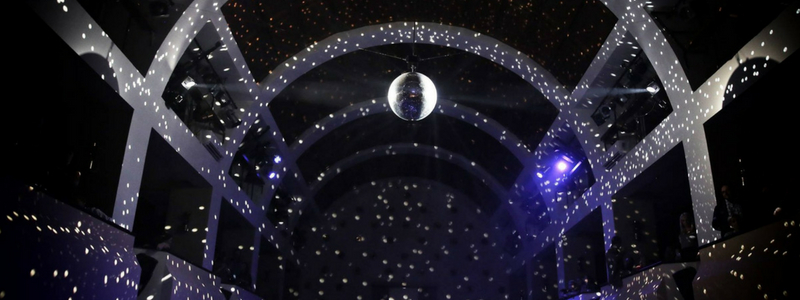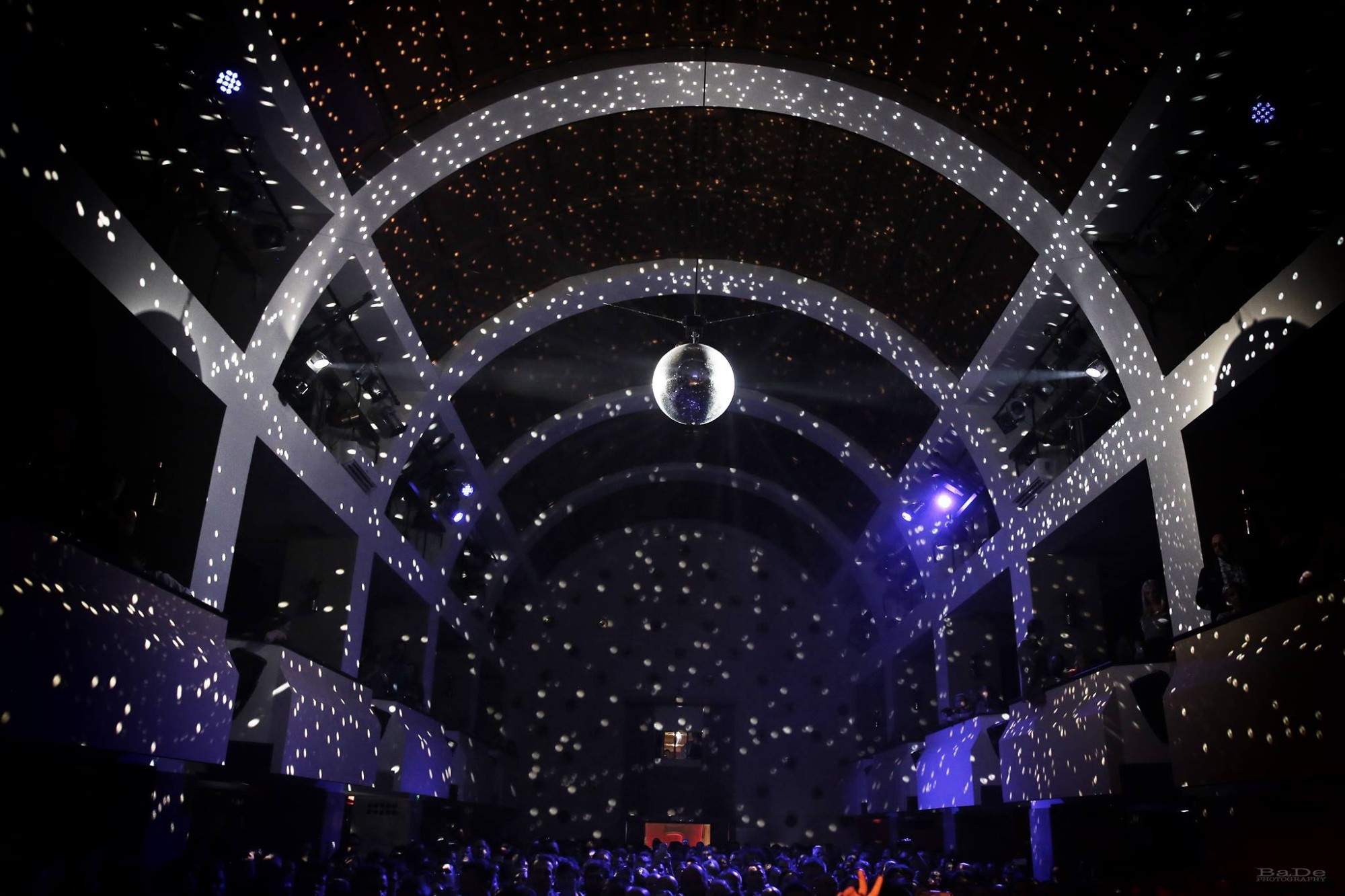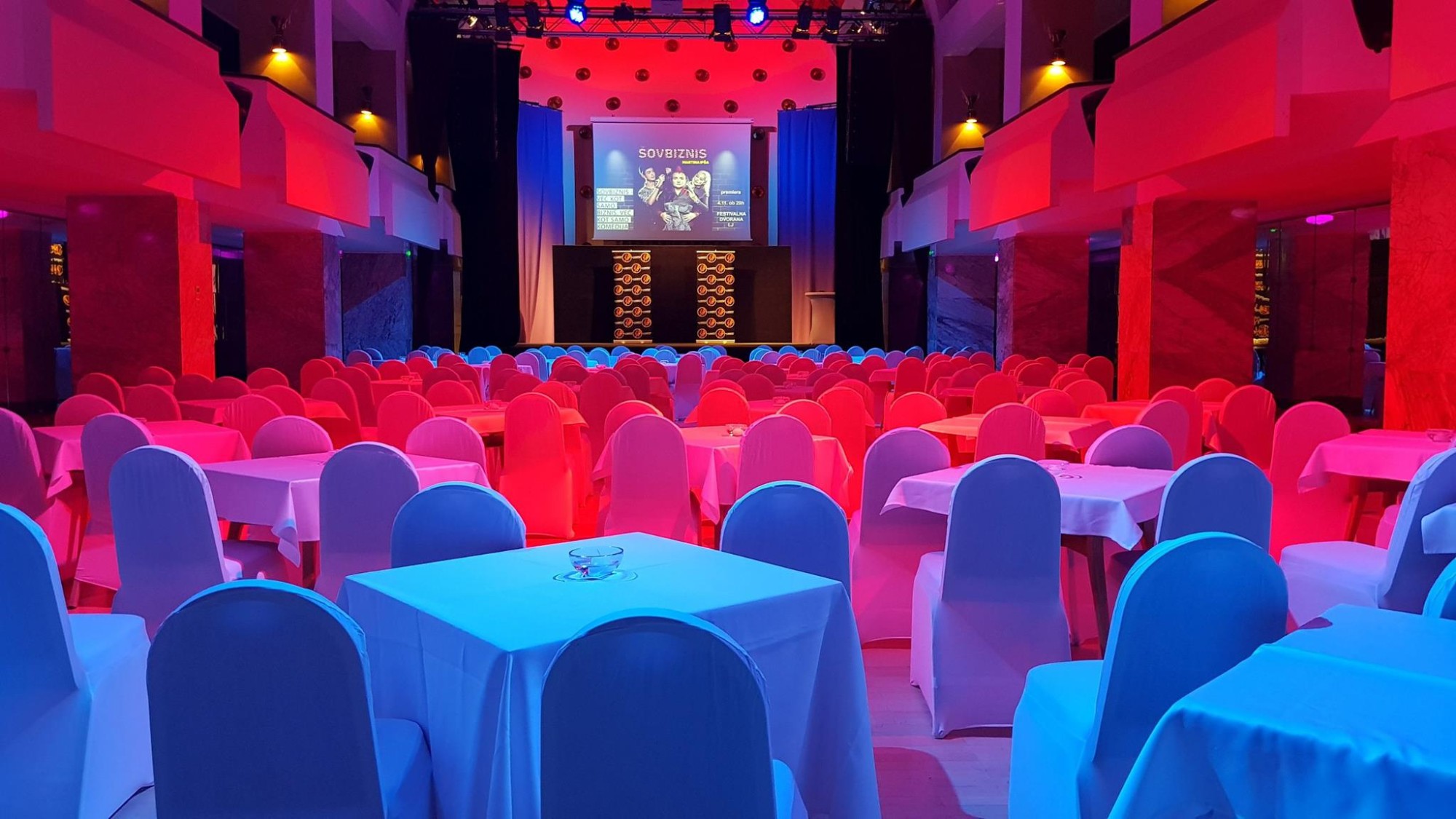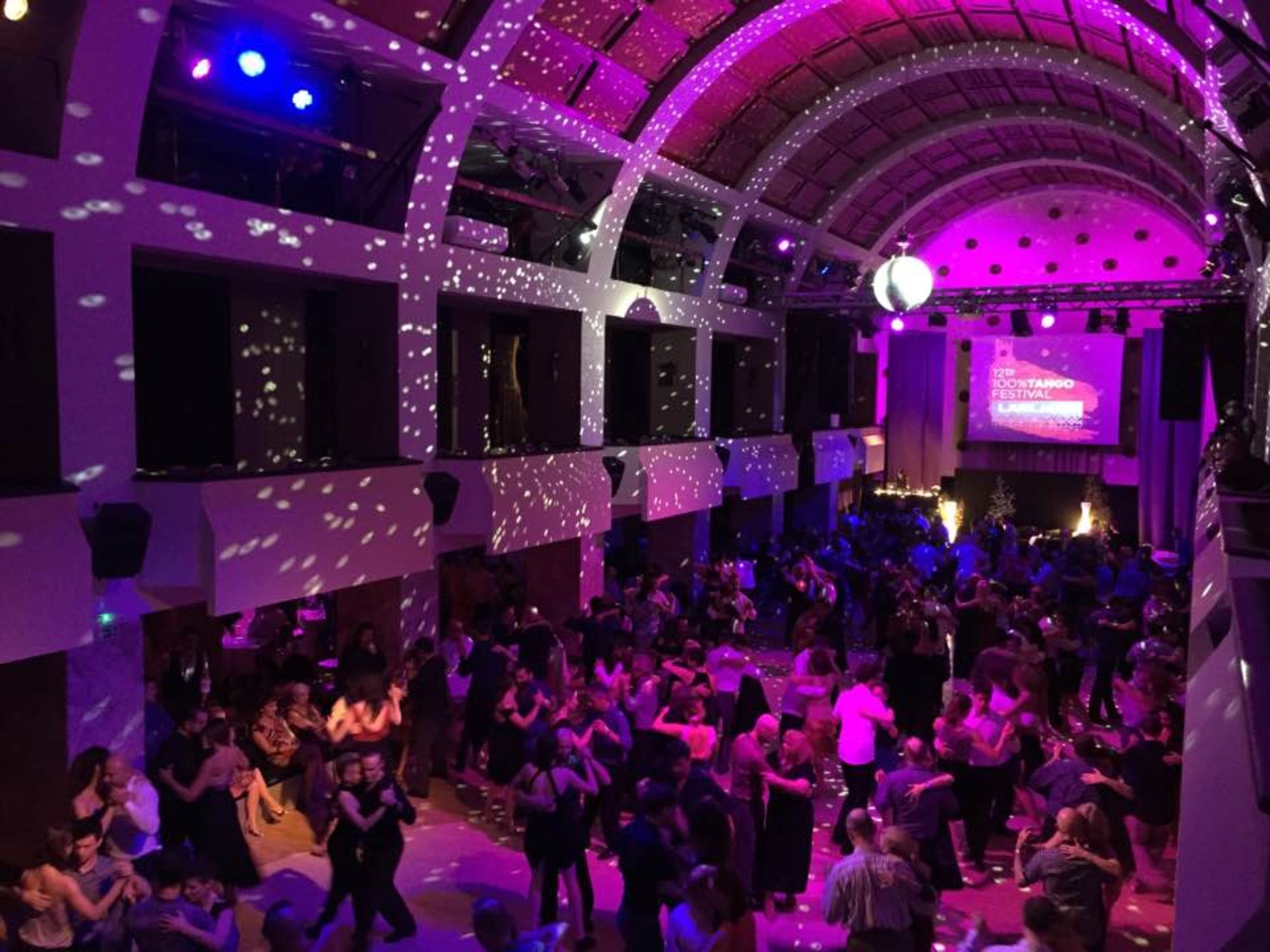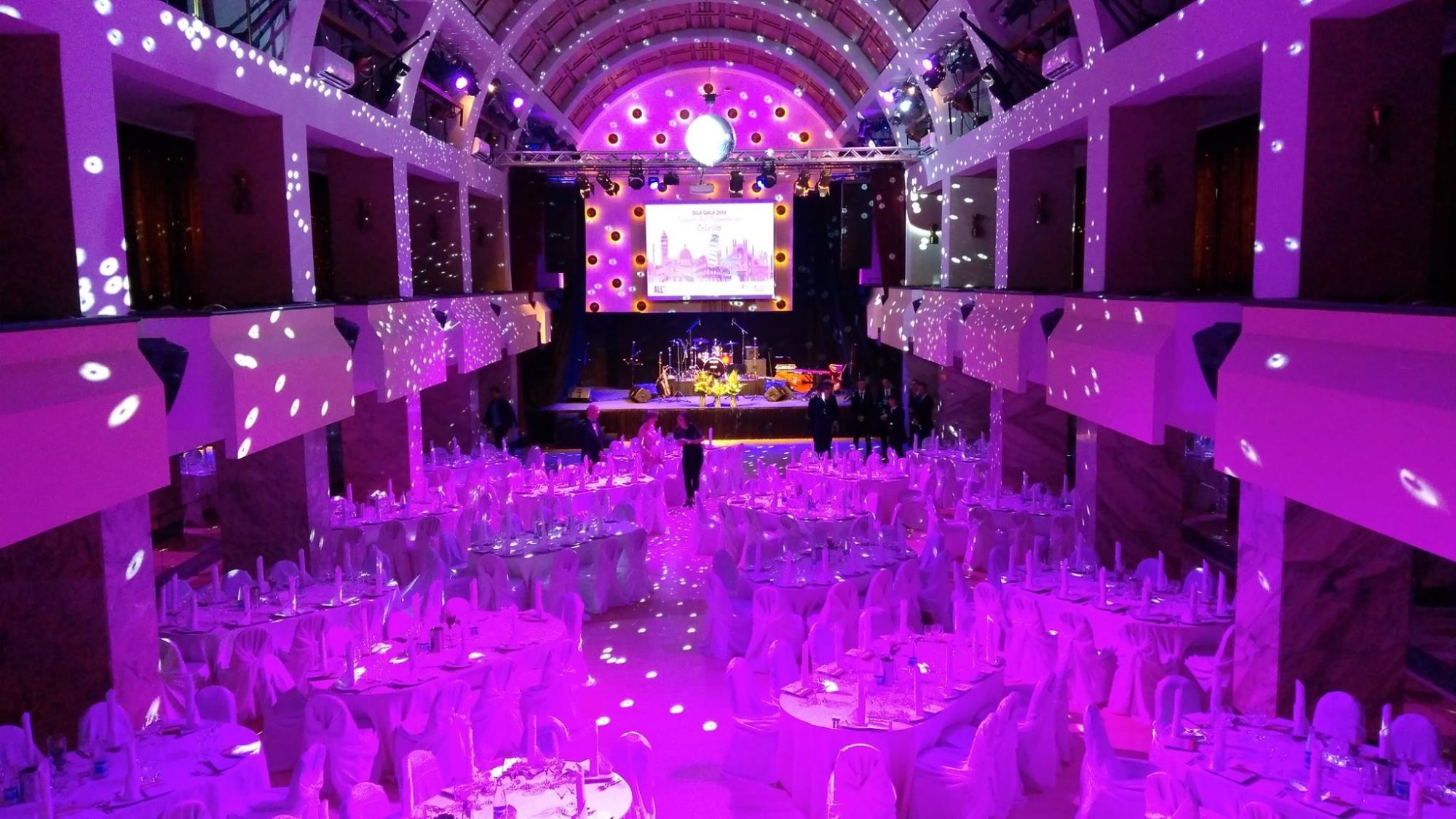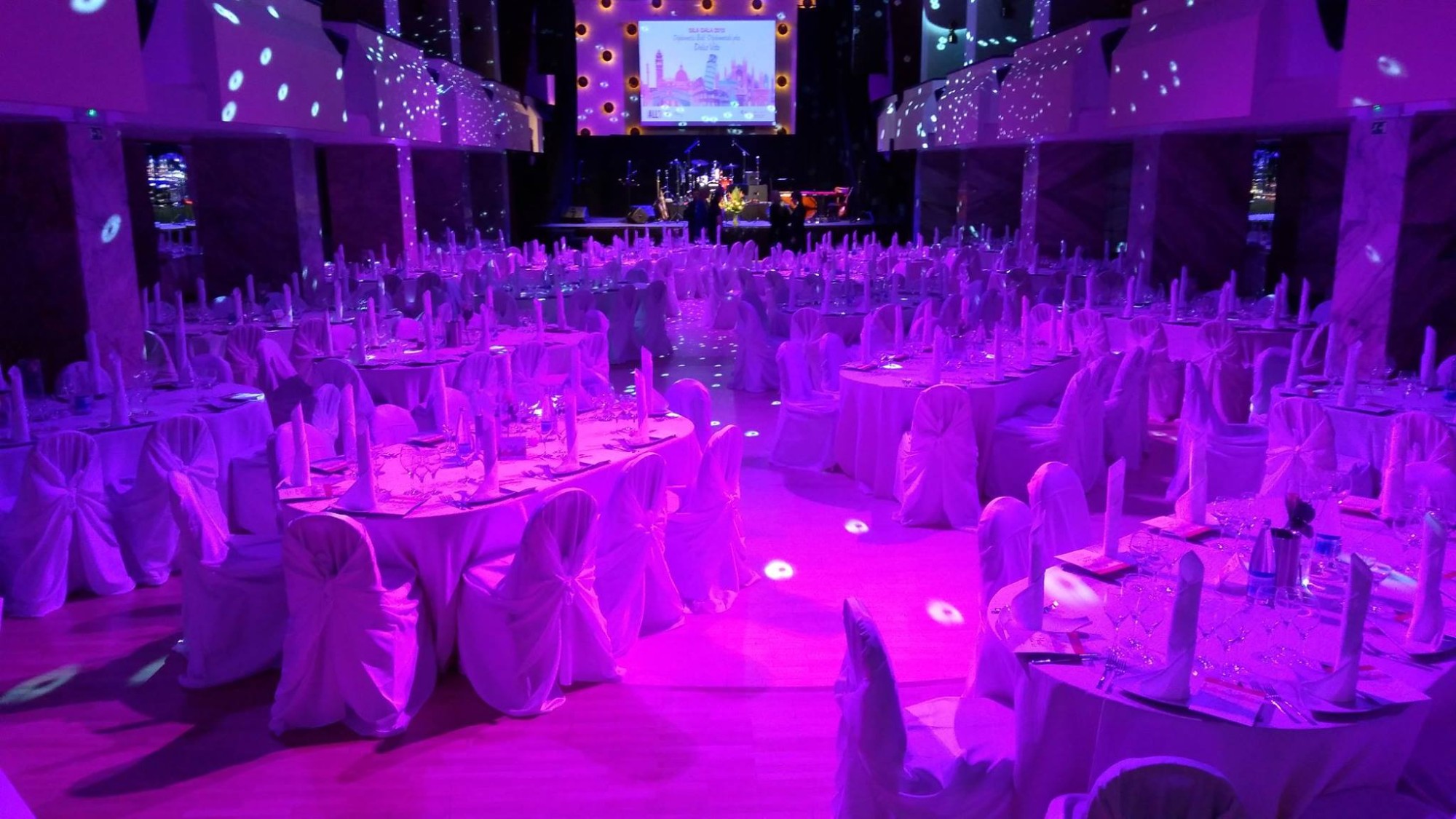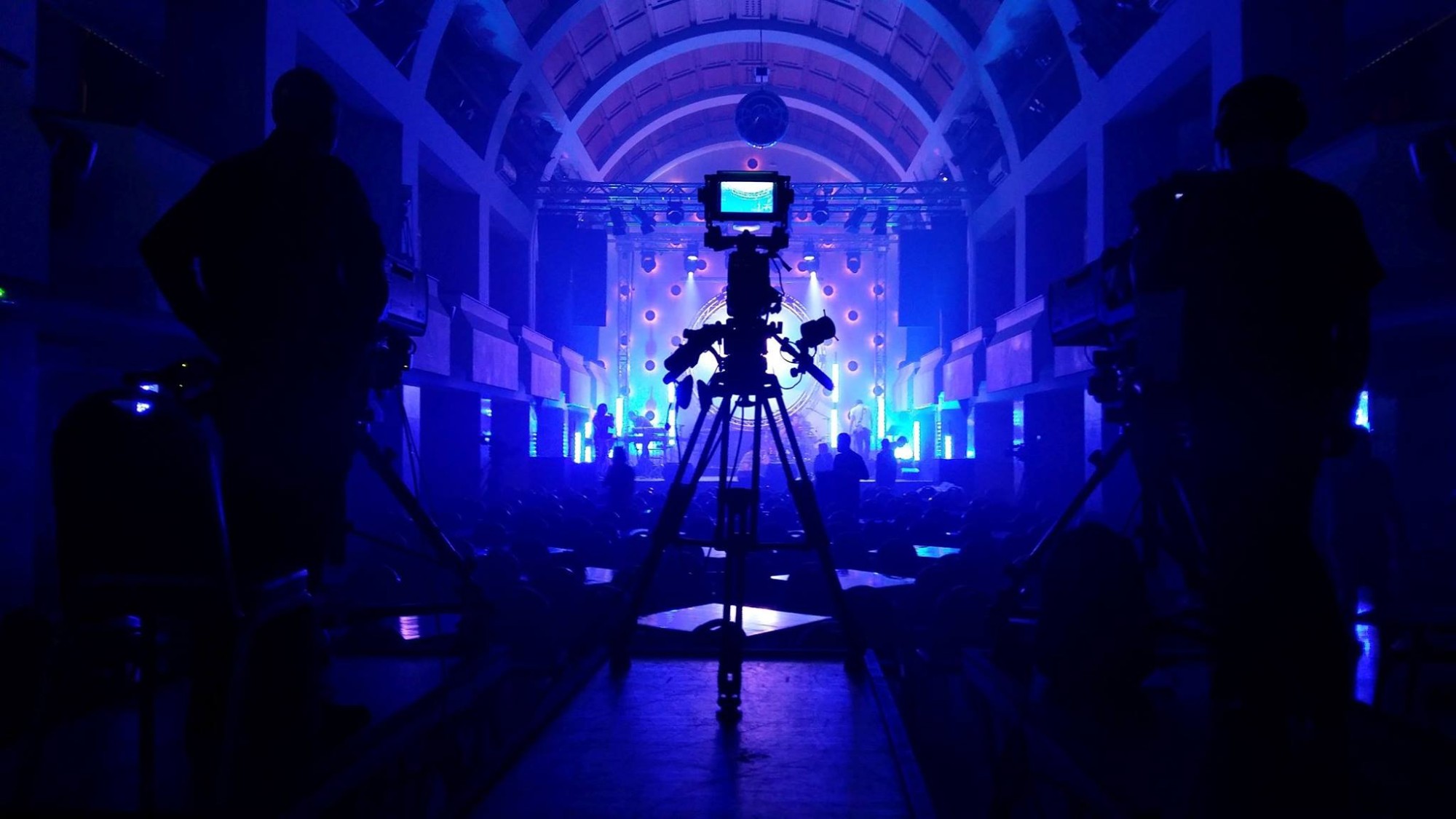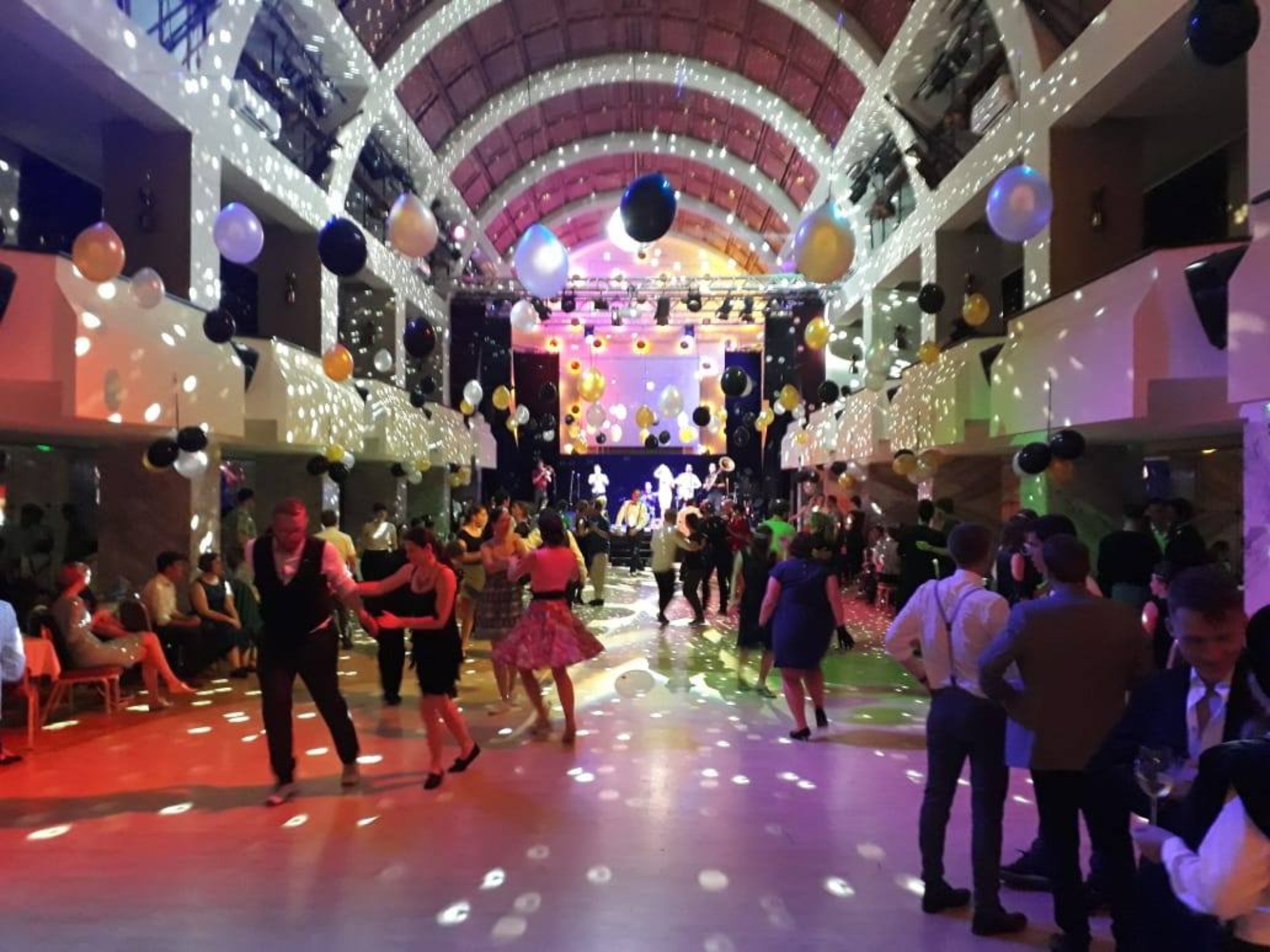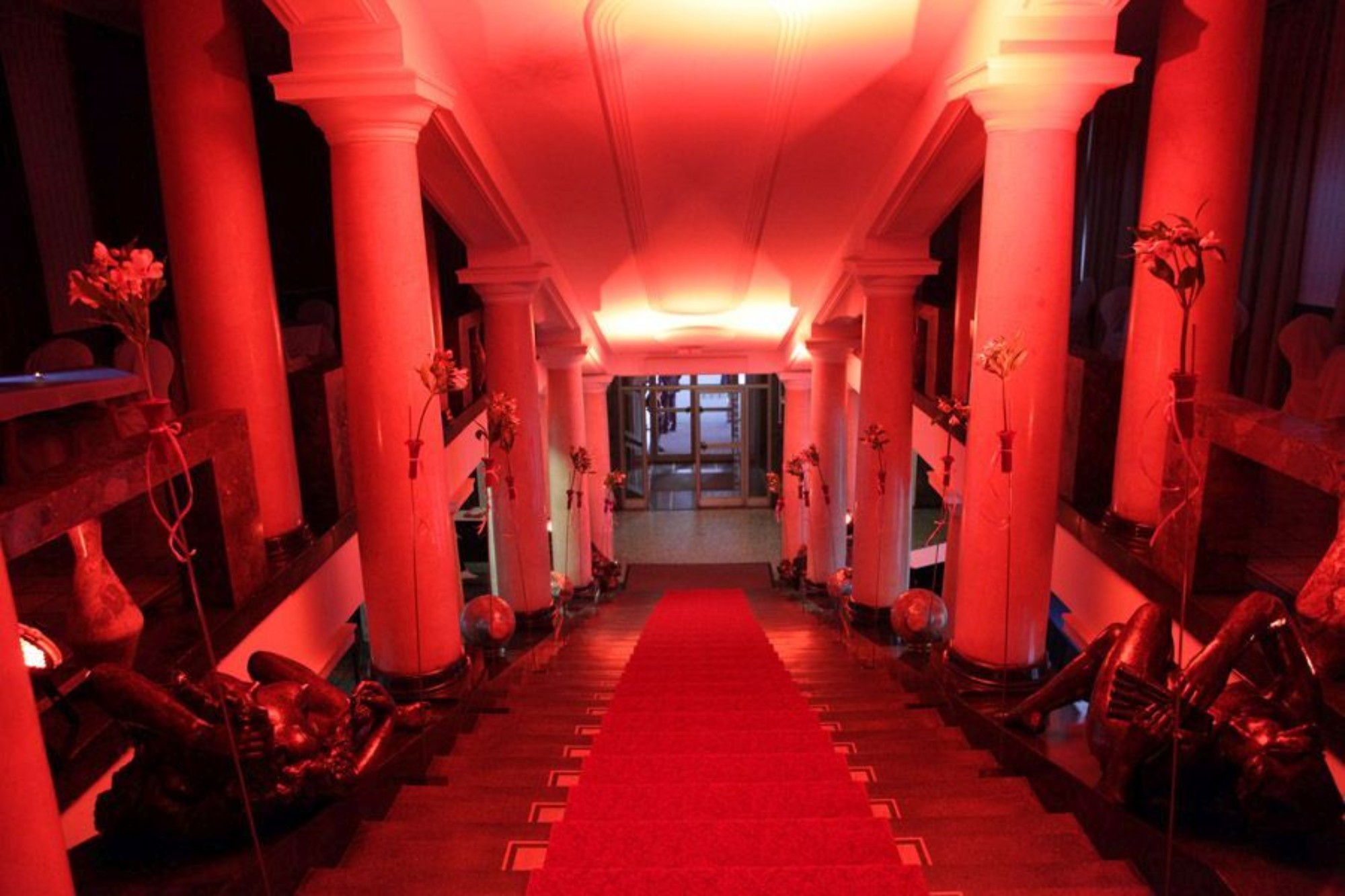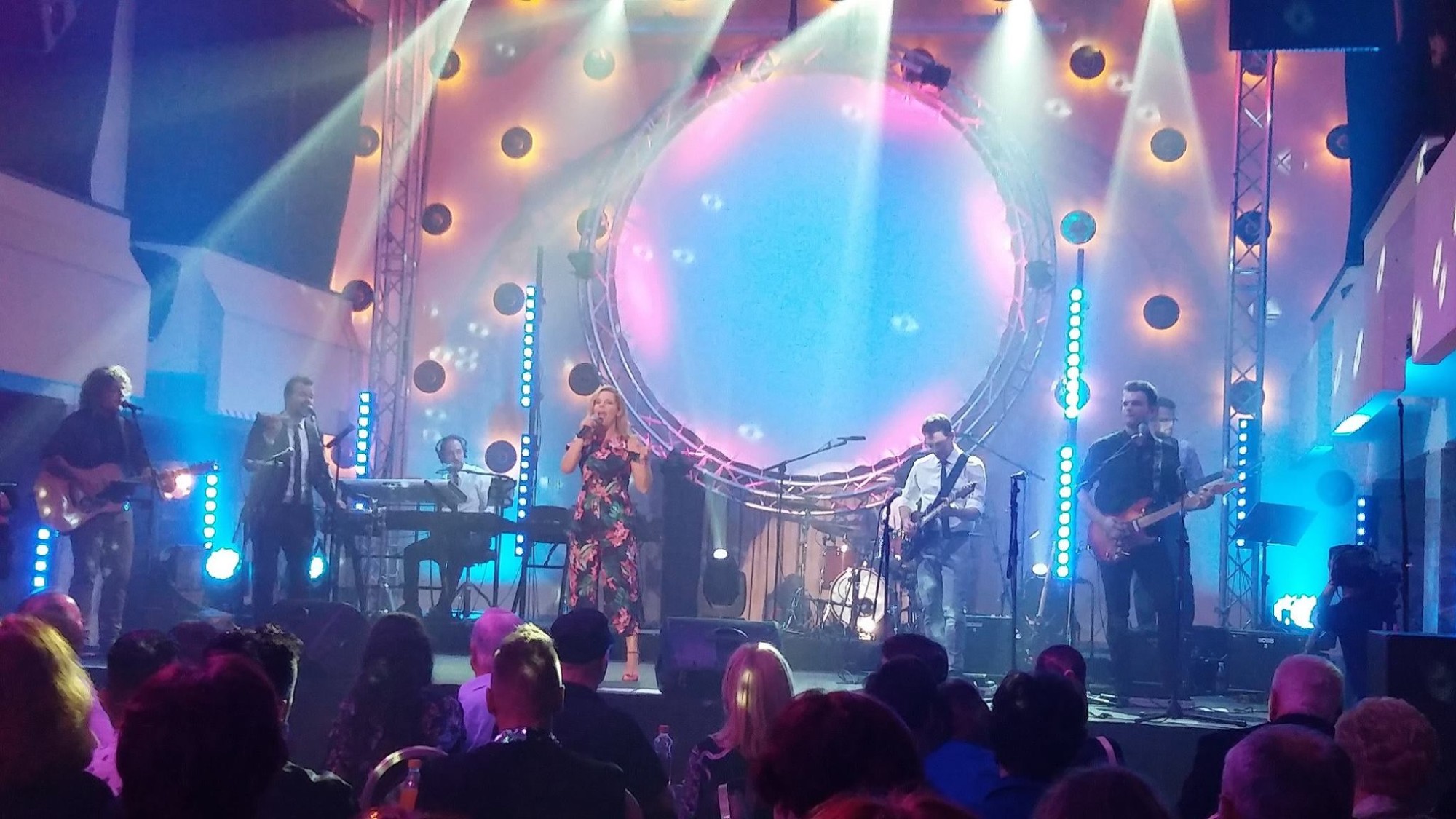The Festival Hall has been the synonym for Ljubljana’s social life for decades. Having provided the venue for the emerging and burgeoning Slovenian popular dance music and jazz scene in the early nineteen-sixties, the Hall also occupies a special place in the history of Slovenian music. Then still bearing its former name, Soča, the Festival Hall was the most popular dance venue of the day; it hosted concerts featuring Bojan Adamič and some of the most popular bands of the time. Later, the Hall regularly programmed youth choral showcases and concerts of partisan songs.
Originally a boarding school for clergy known as the Baraga Seminary, the building was designed by Jože Plečnik and built between 1936 and 1941 on the site of the Ljubljana’s former Saint Christopher’s Cemetery. The semi-circular edifice (the second semicircle, planned by Plečnik in his designs, which would have completed the circle, has never been added) was modelled after the Roman Colosseum and the Mausoleum of Hadrian, known as Castel Sant’Angelo. The enclosed semi-circular building conceals an interesting atrium courtyard.
In 1956, architect Anton Bitenc redesigned the central part of the building with a view to accommodating the Festival Hall. A monumental staircase supported by pillars and decorative sculptures accentuates the entrance. Massive pillars adorn both the foyer and the main hall. Since 1963, cultural events at Festival Hall have been organised by Pionirski dom – Centre for Youth Culture.
The Festival Hall has gone down in the history of Slovenian dance and popular music as a traditional and highly popular venue for dance evenings, concerts, congresses, fashion shows, and primary and secondary school graduation balls. Today, Pionirski dom organises events for young people, and seeks to foster public appreciation of children’s and young people’s creativity. It programmes music and film festivals, competitions, music theatre for young audiences, and traditional Shrovetide masquerades in the Festival Hall. In cooperation with related societies and institutions, it devises programmes aimed at intergenerational integration through dance, music and theatre. Seating up to 1000 visitors, the Hall can be hired for diverse social and cultural events and workshops.
